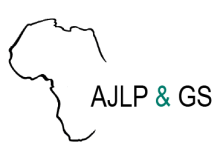Resource information
ABSTRACTContext and backgroundUrban agriculture is one of the urban land uses in the wards of Daraja Mbili and Lemala. Yet, its practice is constrained by limited access to land, unplanned land and the prevalence of claims that the practice is incompatible with non-agricultural and environmental conservation.Goal and objectiveThis study was conducted to investigate the regulation of urban agriculture through land-use planning and institutional frameworks. It examines the extent of successful implementations of land use plans and institutional frameworks.MethodologyThe study adopted a mixed research approach and a case study strategy. Data were collected by using observation, document review and questionnaires. A total of 60 respondents were purposefully selected for in-depth interviews. We did content analysis of the data collected.ResultsThe findings revealed that there were policy and mechanisms of regulating urban agriculture, but their implementations were inadequate. Moreover, the critical challenges hindering the undertaking of urban agriculture were identified, namely unfriendly irrigation infrastructure, a shortage land and environmental pollution due to uncontrolled agricultural activities. Few land use plans which incorporated land for urban agriculture were inadequately implemented owing to weak interaction among key actors to solve agricultural problems and creates opportunities to improve livelihoods of the urban farmers. The paper argues that planning land for urban agriculture should not be mere rhetoric, but it should ensure that land for agricultural activities is demarcated, allocated to prospect farmers and protected from encroachment by non-farmers for non-agricultural uses. This can be done through enhanced collaborative planning.


